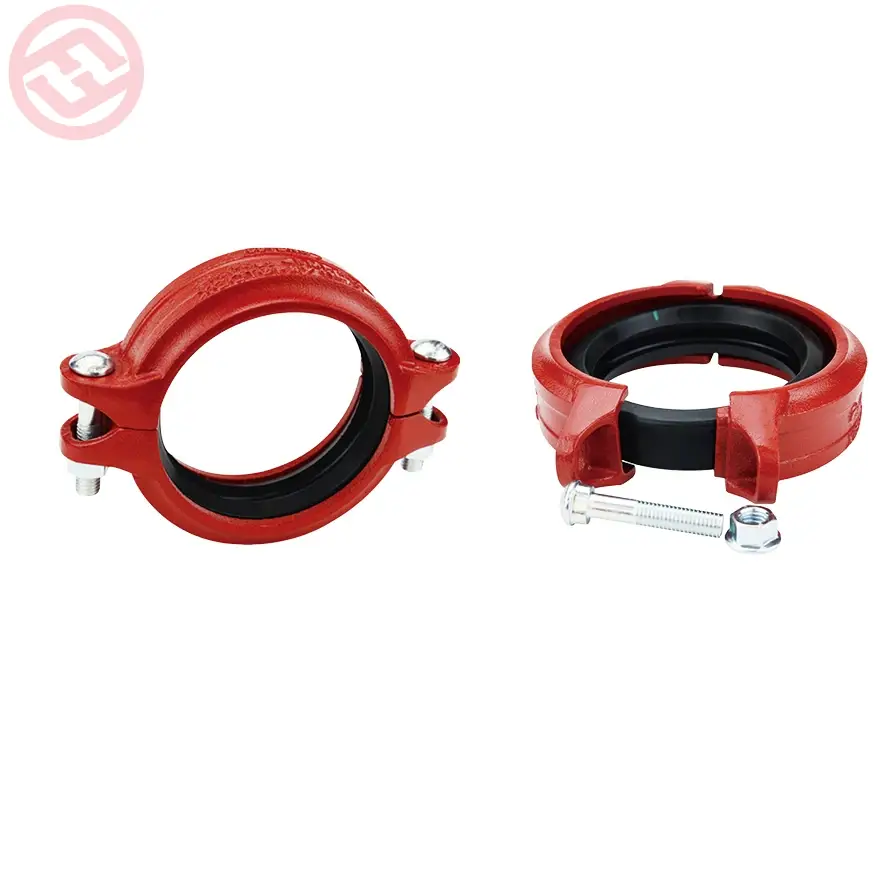Rigid couplings offer several advantages in plumbing installations, making them a popular choice for joining pipes in various applications.
Some of the key advantages of using rigid couplings include:
- Ease of installation: Rigid couplings are relatively simple to install compared to other types of pipe joints, such as welding or threading. They require minimal preparation and no special tools or skills, which can reduce labor costs and installation time.
- Time-saving: Rigid couplings allow for quick and efficient assembly of piping systems, particularly in large-scale or time-sensitive projects. The ability to make connections without waiting for cooling or drying times, as required with welding or adhesives, can expedite the installation process.
- Reduced labor costs: The ease and speed of installation with rigid couplings can lead to significant savings in labor costs compared to more labor-intensive joining methods. Contractors can complete installations more quickly, requiring fewer man-hours and reducing overall project costs.
- Versatility: Rigid couplings are suitable for use with a wide range of pipe materials, including steel, stainless steel, copper, and PVC. This versatility makes them adaptable to various plumbing systems and allows for easy integration with existing piping infrastructure.
- 360-degree rotation: Some rigid coupling designs feature a 360-degree rotation capability, Rigid Coupling allowing for flexibility in alignment during installation. This feature simplifies the process of making adjustments or accommodating misalignment between pipe sections.
- Durable and reliable: Rigid couplings are constructed from robust materials, such as ductile iron or stainless steel, that provide durability and resistance to corrosion, erosion, and mechanical stress. Once installed, rigid couplings create strong, permanent connections that withstand the rigors of plumbing system operation.
- Low maintenance: Once installed, rigid couplings require minimal maintenance or upkeep. Unlike threaded connections, which may loosen over time and require re-tightening, rigid couplings provide a secure, leak-free joint without the need for ongoing adjustments or repairs.
- Fire protection: Certain types of rigid couplings are designed to provide fire protection by maintaining the structural integrity of piping systems during fire events. These couplings can help prevent the spread of fire and smoke, providing additional safety benefits in commercial and industrial settings.
- Cost-effective: While rigid couplings may have a higher upfront cost compared to some other joining methods, their ease of installation, durability, and long-term reliability can result in cost savings over the life of the plumbing system. Additionally, the reduced labor costs associated with installation contribute to overall cost-effectiveness.
- Compliance with standards: Rigid couplings are manufactured to meet industry standards and specifications for performance, quality, and safety. Using approved rigid couplings ensures compliance with regulatory requirements and building codes, providing assurance of system integrity and reliability.
Overall, the advantages of using rigid couplings in plumbing installations make them a preferred choice for contractors and engineers seeking efficient, reliable, and cost-effective piping solutions.
